It was in 1960 that Columbia Pictures released a film that purported to show mankind setting aside its jingoistic leanings so as to explore the Moon through international cooperation; sadly the end result was the space opera 12 to the Moon which had about as much realism and political integrity as films like the Queen of Outer Space.
So that we the viewers can realize just how important this film is it opens with the Secretary General of the International Space Order (Francis X. Bushman) informing us, in very serious monotone voice, of a space mission that consists of an international team of astronauts that would be comprised of twelve members from twelve different countries; United States, Poland, Israel, Sweden, Germany, the Soviet Union, Japan, France, Brazil, Britain, Turkey, and even Nigeria. Now that may seem like a lot of people to cram into a spacecraft (the original Apollo mission had a crew of three) but that’s not all as the ship also sports a menagerie of animals including a dog, a pair of cats and a monkey. And just who could lead such a possible volatile collection of scientists? Well to no one’s surprise the captain of this mission is American John Anderson (Ken Clark), who during his introduction strikes poses as if he’s competing for the Mister Universe competition. Then in the category of “Something for the Ladies” we get a scene where a shirtless Captain Anderson walks in on the two lovely crewmembers while they are showering.
“Captain Beefcake to the bridge!”
This international crew may have been assembled with idea to prevent any one country claiming the moon for their own but it doesn’t stop tensions from forming between the astronauts; Russian geologist Feodor Orloff (Tom Conway) boasts about his countries contributions to science and the space program, this quickly gets on everyone’s nerves and can almost be considered a precursor to the Chekov character from Star Trek. Then there is the soon to be revealed secret that Erich Heinrich (John Wengraf), who designed the spacecraft and is actually the son of a Nazi war criminal who was responsible for the death of fellow astronaut and Israeli born David Ruskin’s (Richard Weber) entire family during the Holocaust. Did the International Space Order not do background checks before picking this crew? Sure Heinrich isn’t responsible for the sins of his father but sticking him on a crew with a Holocaust survivor seems a little bit insensitive. Of course personal drama isn’t the only thing threatening the stability of this mission as mere hours into space Lunar Eagle 1 is found flying into a “meteor cluster” (Science Note: The movie keeps on calling these celestial bodies “meteors” when they are in fact asteroids as they only become meteors when they enter the atmosphere) but luckily their ship is outfitted with something called “penetration rockets” which can destroy oncoming threats, or at least any that they aren't able to outmaneuver.Note: I hope you like this shot of Lunar Eagle 1 rocketing through space because it gets used ad nauseam throughout the film, and which is also not helped by the fact that you can see the stars through the ship’s hull.
Eventually they do land on the Moon’s surface, where Captain Anderson quickly hands out assignments to the crew with one particular job I found quite hilarious, he instructs doctors Sigrid Bomark (Anna-Lisa) and Hamid (Muzaffer Tema) to “search for signs of air and life” as if oxygen is something you could possible find lying about the lunar surface. The two enter a cave and they just so happen to discover it contains breathable air, and any half-conscious viewer is most likely wondering, “Does the cave entrance have some kind of magical airlock that lets people in but not oxygen out?” What is even stranger than random pockets of air on the Moon is that once discovering this amazing phenomenon the two astronauts immediately take off their helmets and proceed to make-out, like teenagers at Inspiration Point.
Is the air on the moon some kind of weird aphrodisiac?
The movie had not bothered to set up an kind of previous relationship between Bomark and Hamid, so their sudden passionate embrace comes completely out of left-field, and it's almost as out of place as the idea of air on the Moon, but before we can question the morality of two professionals acting in such a manner the pair walk hand-in-hand deeper into the cave, when some strange alien presence then seals the cave entrance behind them with a wall of impenetrable ice. Well the old chestnut of “It’s aliens” is as good an explanation to the bizarre goings on in this movie as we are ever going to get, because at this point 12 to the Moon leaves behind an semblance of logic and sense.• The crew are routinely bombarded by meteorites but their “Metal meteorite deflectors” keeps them safe.
• The astronauts discover that there is gold on the moon. So that’s nice.
• They uncover a massive glowing crystal that Dr. Asmara Markonen (Cory Devlin) intones, “It is beautiful but evil. Evil and sharp like the jewel of Medea.”
• A mortar detonation reveals a fountain of some strange liquid that Feodor stupidly sticks his hand in, resulting in severe chemical burns. Are we sure these guys are actual scientists?
• Geophysicist Dr. William Rochester (Phillip Baird) steps into lunar quicksand and cries out, “Don’t get yourselves caught. It’s no use. I’m finished.” This total drama queen is then sucked below the surface, and we are given no reason as to why his friends couldn’t just pull him out.

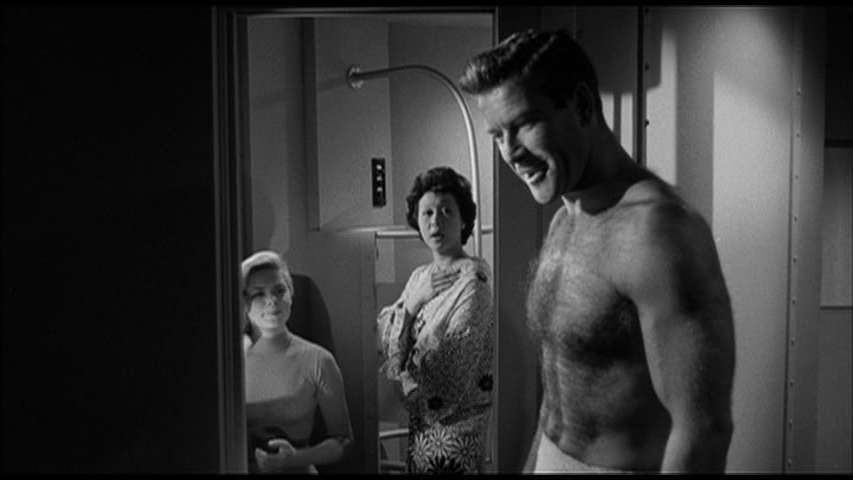
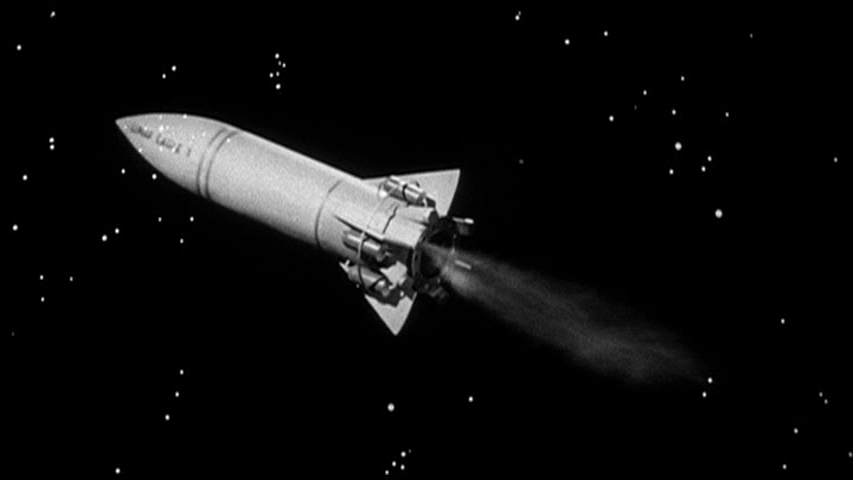


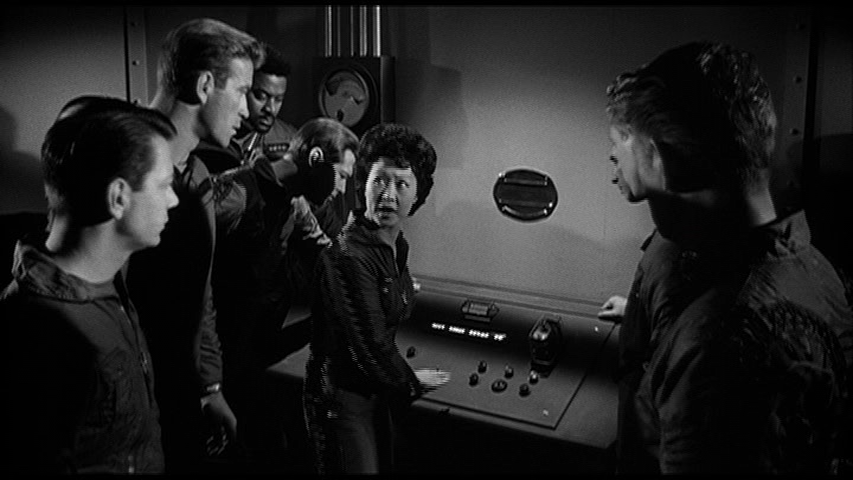
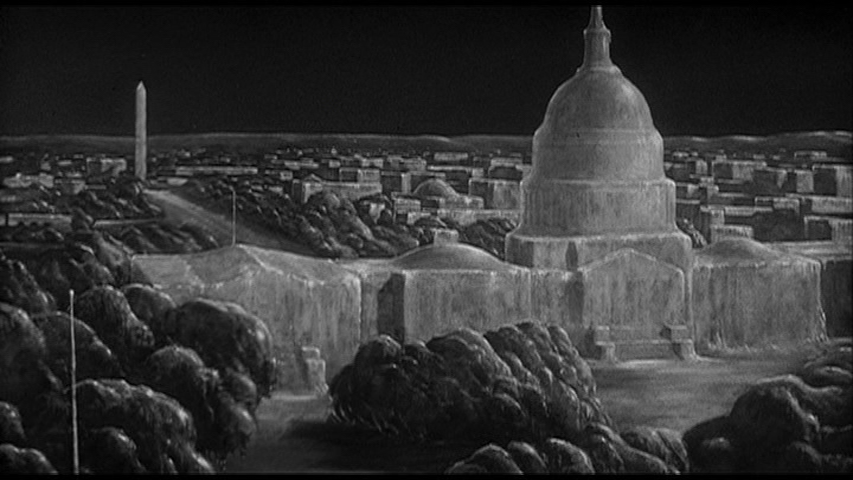
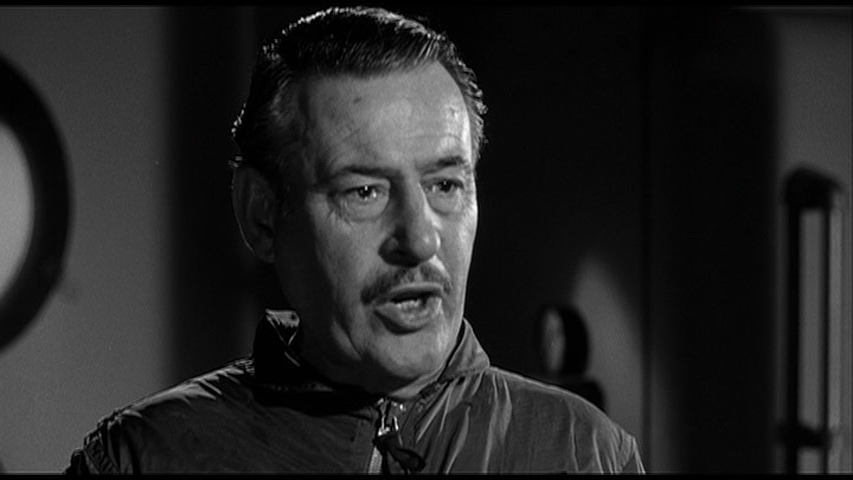


No comments:
Post a Comment